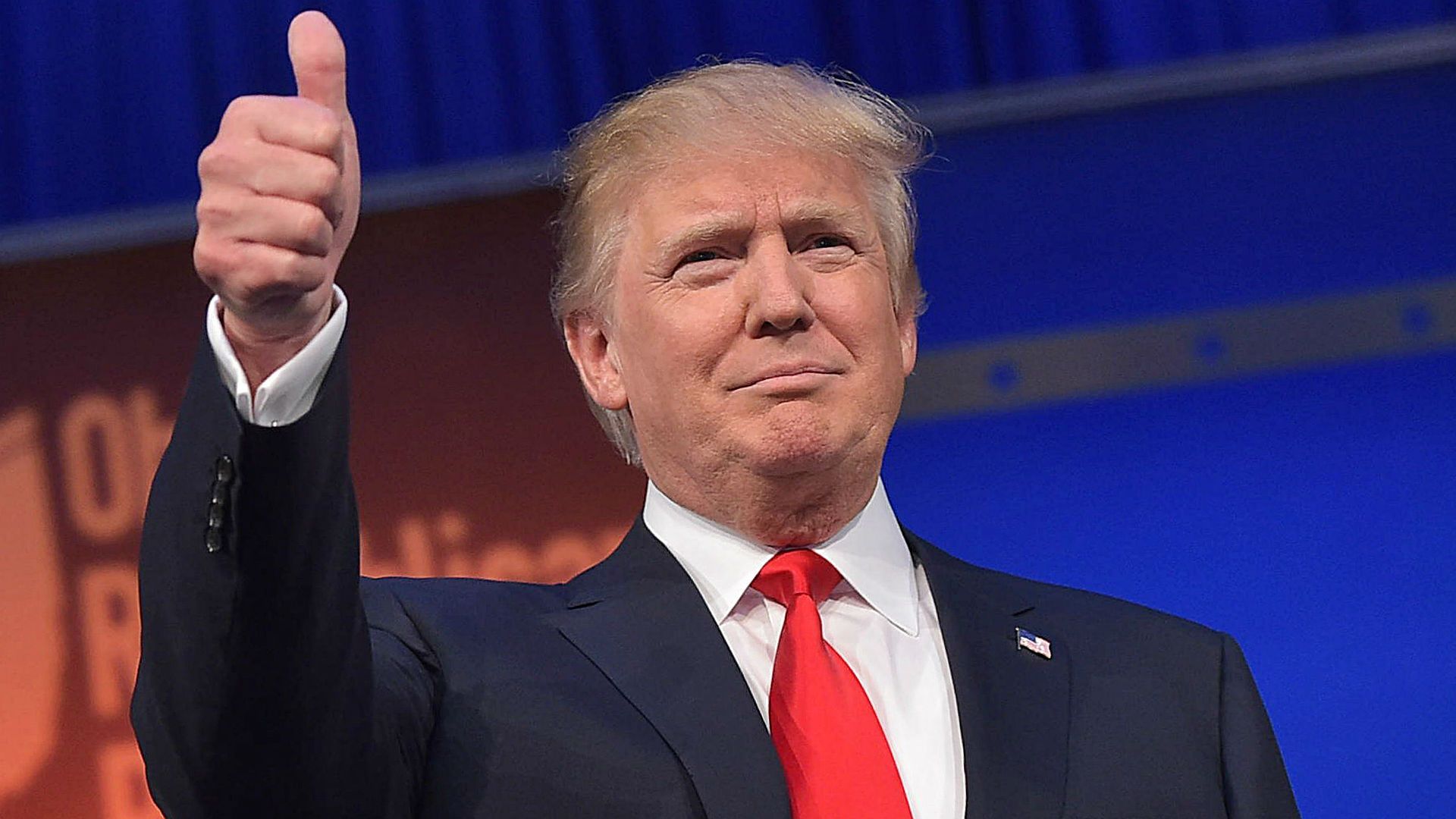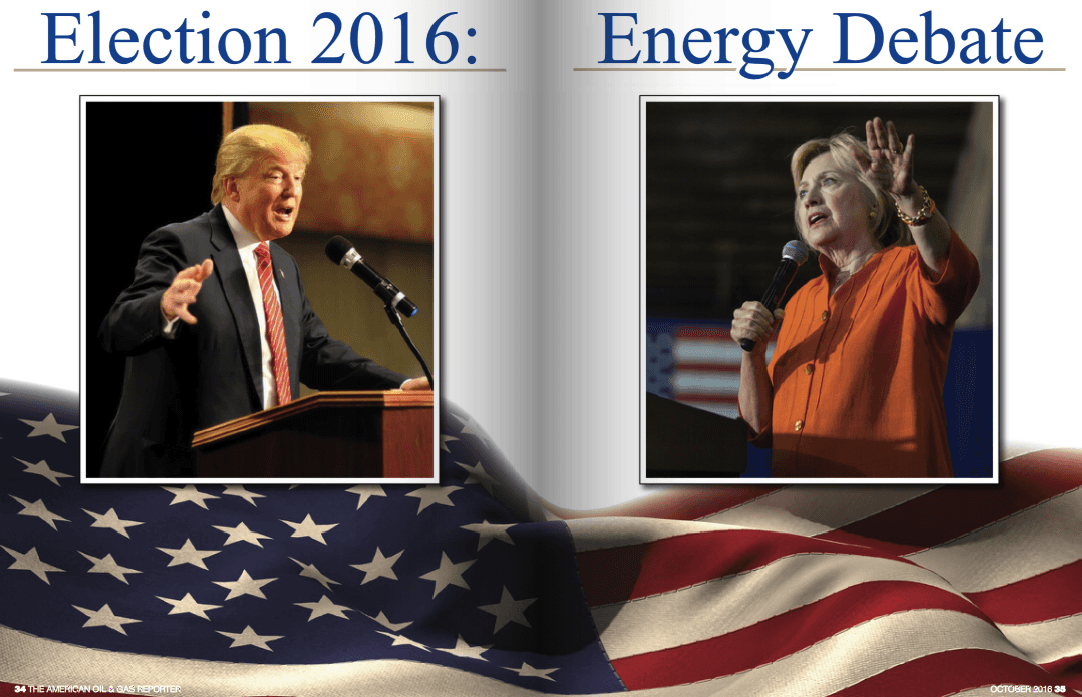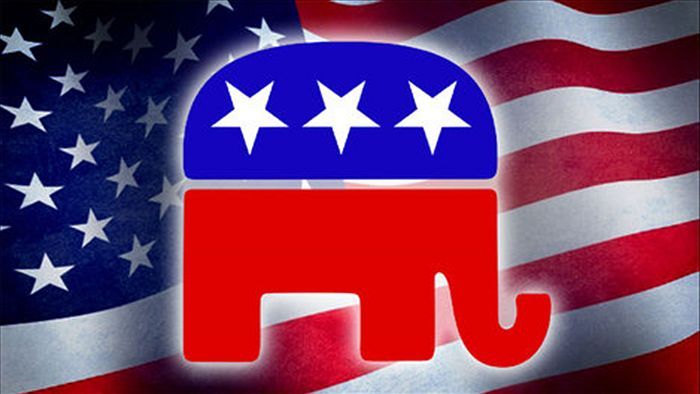How a "10th Amendment" House Rule Could Help Reclaim it's Article 1 Power
- By Tomi Collins
- •
- 08 Nov, 2016
- •
What Impact Would This Rule Have?
Curbing the authority of the administrative state and restoring the Article I power of Congress may well be one of the most important priorities for the next Congress, and enactment of a 10th Amendment based "Madison Rule" by the House that would empower allies in the states to help force reform through Congress could be a critical part of this strategy.
Here is the background:
SUMMARY:
A Rule enacted by the House Republican Majority could help Congress restore its lost Article I power from the Executive Branch by curbing the authority of federal regulators.
A pledge by 51 Members of the U.S. Senate could have a similar effect.
The Rule could make it easier for states to persuade Congress to propose a "Regulation Freedom Amendment" to require Congressional approval for major new federal regulations or perhaps even a balanced budget or fiscal discipline Amendment.
Such a Rule would help to restore a long-term balance of state and federal power and help break the current deadlock in Washington that prevents passage of most pro-limited government measures.
It is called the "Madison Rule" because it recognizes and enforces the power Madison, writing in Federalist 43, declares that the Constitution gives to states to use their Article V power safely for a specific purpose.
A 10TH AMENDMENT-BASED "MADISON RULE" IN THE U.S. HOUSE OF REPRESENTATIVES TO PROTECT THE U.S. CONSTITUTION
Possible Text:
HOUSE RULE XXI: Restrictions on Certain Bills
Consideration of Amendments to the U.S. Constitution
12. It shall not be in order for the House of Representatives to consider a bill, joint resolution, amendment or conference report referring to the states for ratification under Article V of the U.S. Constitution, any Amendment to the U.S. Constitution proposed by a Convention called by Congress pursuant to Article V, that is not within the permitted scope of the Convention that is authorized by each Article V Application Resolution calling for the Convention that has been passed by a state whose Article V Resolution calling for a Convention was relied on by Congress to call the Convention.
WHAT IMPACT WOULD THIS RULE HAVE?
1. If an Article V Convention were ever called (and this Rule does not support or oppose such a call) the Rule would protect our Constitution against the risk of a "so-called runaway convention, and especially against threats to the First and Second Amendments.
2. It would increase the persuasive power of 2/3 of the states who, without ever calling for or even threatening to call for a convention, approached Congress with a request to propose a specific Amendment to the Constitution.
3. By increasing the power of states to persuade Congress to propose a specific Amendment without a Convention, the Rule would help transform the balance of state and federal power, making it easier to take power out of Washington and give it back to the states and the people where it belongs.
BACKGROUND:
Could an Article V Convention Happen?
28 States have now called upon Congress to call an Article V Convention to draft a Balanced Budget Amendment.
8 states have called for a "Convention of the States" to propose multiple Amendments to limit the size and power of the federal government.
It is not inconceivable that a total of 34 might call for a Convention for the same purpose sometime in the next few years.
Frustration with the inability of Congress to deal with issues like the deficit or perhaps with another popular concern could potentially end up forcing the states to take action.
If 34 states did call for a convention for the same subject, there is a strong likelihood that Congress will be forced to call such a Convention.
Who Wants An Unlimited Convention?
If Congress does call a Convention, there are strong political forces that might not want such a Convention to be limited in scope.
Many thousands of activists for example, signed petitions in support of an amendment to weaken the First Amendment to permit stronger government restrictions on free speech, in the name of campaign reform. Several states have already called for a Convention for such a purpose.
They would be hard-pressed to get the legislatures of 34 states to call a Convention for their Amendment. But they might hope to win support for such an Amendment at a Convention called for another purpose that their allies might eventually control.
Other activists want changes in the electoral college, the 2nd Amendment or other portions of the Constitution, particularly sections that refer to Congress, since this would be a unique, once in 200 years, opportunity to bypass Congressional control of the Amendment process. There will be no shortage of ideas.
Professors like Harvard's Larry Tribe have argued that a Convention once convened is sovereign, with unlimited scope. They ague that it is beyond the power of 34 states who call for a convention for a limited purpose to limit that convention's scope.
Many people fear that such a Convention might become a free-for-all of suggested amendments, some of which could be quite dangerous to the checks and balances written into our Constitution.
The Unpredictable Convention
The risk of a Convention whose scope expands dangerously beyond that intended by the states who called for it is compounded by the possibility that Convention may be controlled by a majority of delegates very different from the views of the legislators and legislative leaders of the 34 states who originally called for the convention.
First the convention delegates may be elected by voters in some or all states, depending on how each state, Congress and the Courts determine the method of delegate selection.
Second convention delegates may be apportioned among states equally, by electoral vote or by popular vote, depending on who controls Congress at the time the Convention is called, the language in the call to Convention, and how the Courts rule on such issues.
Third, the political climate may change dramatically between the time the legislatures of 34 states act, the time the Convention is called by Congress, and the time delegates are selected.
Given the time it may take for Congress to act, Courts to resolve legal issues and the time it may take for states to select or elect delegates, it might take several years to actually convene a Convention, even after 34 states have acted.
How to Ensure the Scope of a Convention can be Limited, if one were ever to happen:
Under these circumstances it is critical for defenders of the Constitution and opponents of an unlimited convention to take as many steps as possible now to ensure that any Convention called by the states for one purpose, or even for one specific amendment, cannot be transformed into a unlimited Convention.
State leaders in a number of states who want to strengthen state authority to limit the scope of a convention, are now considering "no runaway convention", "delegate limitation" or "faithful delegate" state laws to strictly limit the authority of their delegates, and to replace and punish delegates who exceed their permitted authority. Legislatures in 7 states have passed such laws.
State leaders are also considering "protect the Constitution" State constitutional amendments that would bar that state from even considering the ratification of an Amendment from an Article V Convention that exceeded the scope of the Convention permitted by the states who called for it.
Most observers believe that voters strongly oppose the idea of a "runaway convention" that might change the U.S. Constitution in unpredictable ways. For this reason "protect the Constitution" measures could be quite popular.
Constitutional Arguments for a Limited Convention
There is a strong body of legal scholarship, including an official ABA Study co-authored by Warren Christopher and by Jeffry Sachs the then Dean of Harvard Law School , that supports the principle that states have the power constitutionally to limit the scope of a convention they call for.
James Madison in the Federalist Papers argued that the states have the same power as Congress to propose amendments, strongly implying that states have the power to limit the scope of a Convention.
Federalist #43:
"It (the Constitution) equally enables the general and the State governments to originate the amendment of errors, as they may be pointed out by the experience on one side or the other"
The 10th Amendment's reservation of power not delegated to the federal government to the states and the people, also supports the principle that states have the power to limit the scope a convention they call for.
The Importance of a House Rule
At least one senior Appeals Court Judge, has suggested that the power of states to limit the scope of a Convention might be a political question for Congress to resolve.
Under these circumstances it could well be in the interest of the House to guard against the risk of a runaway convention by adopting a measure recognizing and enforcing the Constitutional authority of states who call for an Article V Convention to limit its scope.
A House Rule could prohibit the floor consideration of any Amendment from a Convention unless that Amendment was within the scope authorized by each and every one of the 34 states who called for that Convention.
There is a strong argument that Congress has not only the power, but the duty to protect the Constitution from an unconstitutional Amendment.
If for example, a Convention were to propose an amendment that deprived a state of its equal representation in the Senate, the clear words of Article V would apply.
"no state, without its consent, shall be deprived of its equal suffrage in the Senate."
There is a strong argument, therefore, that It would be the duty of Members sworn to uphold the Constitution, to block such an unconstitutional Amendment from being submitted to the states for ratification.
In the same way, there is a strong argument that Members of Congress and a House Majority who believe that Article V and the 10th Amendment give states the Constitutional power to limit a Convention, would be obligated to block referral to the states of an Amendment from a Convention that ignored those limits.
This could be done by a House Majority by enacting a simple House Rule like the following draft cited earlier in this memo:
THE 10th AMENDMENT-BASED "MADISON RULE" IN THE U.S. HOUSE OF REPRESENTATIVES TO PROTECT THE U.S. CONSTITUTION FROM A RUNAWAY ARTICLE V CONVENTION
HOUSE RULE XXI: Restrictions on Certain Bills
Consideration of Amendments to the U.S. Constitution
12. It shall not be in order for the House of Representatives to consider a bill, joint resolution, amendment or conference report referring to the states for ratification under Article V of the U.S. Constitution, any Amendment to the U.S. Constitution proposed by a Convention called by Congress pursuant to Article V, that is not within the permitted scope of the Convention that is authorized by each Article V Application Resolution calling for the Convention that has been passed by a state whose Article V Resolution calling for a Convention was relied on by Congress to call the Convention.
This draft could certainly be edited and modified.
Advantages of a Rule:
A 10th Amendment-based "Madison" Rule would have the following advantages:
1. It would put the House on record in support of the states' power to limit the scope of a Convention.
2. It would help to protect the Constitution from the risk of a runaway convention.
3. It would put opponents of the Rule in the position of appearing to favor the unpopular idea of a "runaway convention"
4. It would open up the possibility that a limited government majorities in 2/3 of the states, empowered by the Rule could call for or threaten to call for a convention strictly limited to one Amendment on a single subject or even to an up or down vote on the text of a specific Amendment.
5. One such Amendment could be a "Regulation Freedom Amendment" to require that Congress approve major new federal regulations, that would help restore the Article I power that has been taken from Congress by the Executive Branch.
The Regulation Freedom Amendment has been endorsed by 19 state legislative chambers as well as by the American Farm Bureau, RNC, and the 2016 GOP Platform.
By simply passing Resolutions urging Congress to propose an identical amendment, without ever referring to a Convention, 67 legislative chambers in 34, 2/3, of the states could make it in the interest of Congress to propose a limited-government oriented Amendment like a regulation freedom or balanced budget amendment that 2/3 of the House and Senate might not propose with outside pressure.
64 of the 67 state legislative chambers in the 34 most limited government minded states now have Republican majorities. In at least three KY, NM, and IA there are strong pro-energy, pro-agriculture constituencies that are skeptical of federal regulators and other abuses of federal power. At least some Democrats in these states like the idea of curbing federal regulators.
Congress would be far more likely to propose something similar to a reasonable Amendment suggested by the states than to call an Article V Convention, even one for a limited purpose.
Empowering States
Thus, a House Rule would help open a path for a pro-limited government coalition of 34 states to draft and then to persuade Congress to propose a specific amendment to the U.S. Constitution.
The impact of a House Rule could be to encourage states to work together on an Amendment and seek a 34 state consensus on such an Amendment that would enable them to persuade Congress to adopt in order to avoid a Convention.
Empowering states to take a more predictable and safe path towards the process of amending the Constitution for certain specific amendments, would help restore the power of states under Article V that the authors of our Constitution intended in order to keep the power of the federal government in check.
Conclusion:
To to help Congress restore its Article I power from the Executive Branch, protect the Constitution from the risk of a runaway convention, and to empower the states as the original authors of the U.S. Constitution intended, Congress should enact a 10th Amendment-based Madison Rule.
Recent Posts

Will we be satisfied with executive orders and laws that will only last as long as our temporary majorities in Washington, or can we permanently restore checks and balances that will start taking power permanently out of Washington?
There is now a unique opportunity to permanently and constitutionally curb the authority of executive branch regulators and preserve the regulatory reforms of the coming Administration from repeal without the consent of Congress.
Nothing would do more to restore a long term 3 or 4 percent growth rate to our economy than permanently ending the fear of arbitrary federal regulation.
And nothing would do more for the electoral prospects of advocates of limited government than a high-growth job-creating, wealth-creating economy.
A bipartisan group of more than 1,000 state legislators, 7 Governors and former Governors including Mike Pence, language in the 2016 GOP Platform, a unanimous vote of the RNC, the American Farm Bureau, the National Taxpayers Union, and Resolutions passed in 25 State Legislative chambers have endorsed the "Regulation Freedom Amendment" to require that Congress approve major new federal regulations.
The Text of the Regulation Freedom Amendment is:
"Whenever one quarter of the Members of the U.S. House or the U.S. Senate transmit to the President their written declaration of opposition to a proposed federal regulation, it shall require a majority vote of the House and Senate to adopt that regulation."
Just as states helped force Congress to propose the Bill of Rights, leaders in 2/3 of the states working with allies in Congress could potentially over the next 2-3 years force Congress to constitutionally require that major new federal regulations be approved by Congress and permanently restore the Article I power of Congress.
A team of political, business and grassroots volunteer leaders, could play a key role in making the issue of "ending regulation without representation" one of the decisive issues of 2018 and 2020.
Every state legislator, every Member of Congress, every statewide elected official, and every radio talk show host in America can be asked if they have heard of and will they support the Regulation Freedom Amendment to permanently require that major new federal regulations be approved by Congress.
The 2016 National GOP Platform includes the following language:
"We call on Congress to begin reclaiming their constitutional powers from the bureaucratic state by requiring that major new federal regulations be approved by Congress before they can take effect, such as through the Regulation Freedom Amendment."
The Republican National Committee has unanimously voted for a Resolution supporting the Regulation Freedom Amendment.
25 State Legislative Chambers have passed Resolutions urging Congress to propose the Regulation Freedom Amendment.
These chambers are:
West Virginia House and Senate
Georgia-House and Senate
Arkansas-House
Tennessee-House and Senate
Indiana-House and Senate
Kansas House and Senate
Missouri Senate
North Dakota-House and Senate
South Dakota-House and Senate
Texas Senate
Wyoming-House and Senate
Montana-House and Senate
Idaho-House
Utah-House and Senate
Arizona House
A majority of the Members of the Arkansas Senate have also signed a letter endorsing the Amendment)
Similar Resolutions are pending in other states.
President Trump said at the 2017 NRA Convention in Atlanta "We don't want to be ruled by the bureaucrats in Washington!"
Former Presidential candidates Ted Cruz, and John Kasich have endorsed the Regulation Freedom Amendment.
House Rules Committee Chairman Pete Sessions (R, TX), House Natural Resources Chair Rob Bishop, (R-UT) Immediate Past House Judiciary Constitution Subcommittee Chair Trent Franks (R-AZ) and Trump Energy Task Force Chair Rep. Kevin Cramer (R, ND) are among the key supporters of the Regulation Freedom Amendment in the U.S. House.
We are leading a bipartisan effort to mobilize state and congressional leaders to force Congress to curb the authority of federal regulators.
Ending the fear of capricious Federal regulators by requiring that Congress approve major new federal regulations would be a powerful way to protect our Constitutional rights and accelerate economic growth!
Every voting Republican Member of the of the U.S. House along with some courageous Democrats recently supported the "REINS" Act to require that Congress approve major new federal regulations, and President Trump, when he was a candidate, committed to sign it.
But the REINS Act generally requires Congressional approval only for regulations with an economic cost of more than $100 million, which may not protect against regulatory threats to 2nd Amendment rights, religious freedom, or free speech. In addition, creative regulators could evade the REINS Act by proposing multiple regulations, each with a cost of less than $100 million.
But more fundamentally, Congress is too divided to pass such a law and it could also could be challenged in Court or repealed or weakened by a future more liberal Congress.
However just as states helped force Congress to propose the Bill of Rights, and more recently Presidential term limits, 2/3 of the states who favored the same Amendment to curb regulators might well force Congress to propose it.
And the Regulation Freedom Amendment puts Congress, not bureaucrats, in charge of deciding which regulations are subject to Congressional approval.
The 33 states with GOP majorities in the both houses of the state legislature, with the support of reasonable Democrats as in KY, where the Democratic House Floor Leader has endorsed the Regulation Freedom Amendment and potentially in other swing states like NM, NV, ME, CO, and WA where many are skeptical of federal regulators could add up to a 2/3 majority of 34 states that could force Congress to act.
If we can focus national attention on the need to curb federal regulators, the mid-term elections of 2018 could potentially result in the election of even more legislators who support the Regulation Freedom Amendment.
Even the credible threat that states might force Congress to act could deter regulators and force elected officials and candidates to answer a simple question:
"Should regulators keep their power to dictate from Washington, or should they be made more accountable to elected officials?"
Or even more starkly, should the nation be run by un-elected bureaucrats in Washington or by elected representatives of the people?
Polling shows that voters, by a 2-1 margin favor the Regulation Freedom Amendment. The issue unites friends of limited government and attracts Republicans, Independents and Democrats.
The legislatures of 7 States have already passed laws that strengthen their ability to force Congress to act: Indiana, Tennessee, Florida, Georgia
Utah, South Dakota and North Dakota.
Similar legislation is pending in other states.
These "Faithful Delegate" laws give each state the power to replace and thus control potentially disobedient delegates if there ever was an Article V Convention, even though the Regulation Freedom Amendment effort is not threatening to call one.
If enacted by a majority of states with a majority of the population, these laws would give those states the potential power to force Congress to call a convention, a majority of whose delegates could be enforceably instructed to limit the Convention to just an up or down vote on the Amendment states wanted.
Congress will do almost anything to avoid a Convention.
A U.S. House 10th Amendment-based "Madison Rule" or a similar pledge by a majority of U.S. Senators to recognize and enforce the Article V and 10th Amendment power of states to strictly limit the scope of a Convention would further strengthen the power of states to force Congress to propose a state-initiated Amendment, even if states never threatened a Convention.
Pete Sessions, Chairman of the House Rules Committee and Trent Franks, (R, AZ) past Chair of the House Judiciary Subcommittee on the Constitution support the "10th Amendment Rule" and the House Republicans have initiated a process to study it.
If 2/3 of the states demonstrate their power to force Congress to propose an Amendment without a Convention, the entire balance of state and federal power will be transformed.
Faced with even the potential of such a threat Congress would almost certainly propose the Amendment states wanted to avoid the risk of a Convention that would be more powerful than Congress.
The bottom line is that a strategy of passing "Regulation Freedom Amendment" Resolutions in 34 or nearly 34 states in addition Faithful Delegate laws in what could become a majority of states, or the adoption of a U.S. House Rule, or a pledge by 51 U.S. Senators could force Congress to propose the Regulation Freedom Amendment as early as 2018 or 2019.
Here is a partial list of political leaders who support the Regulation Freedom Amendment:
GOVERNORS AND FORMER GOVERNORS
Mike Pence, IN
Phil Bryant, MS
Matt Mead, WY
Paul LePage, ME
Bill Haslam, TN
John Kasich OH
Bob Ehrlich MD
STATE GOVERNMENT LEADERS
NCSL (National Conference of State Legislators) Past Presidents UT Senate President Pro-Tem Curt Bramble and former GA Senator Don Balfour.
CSG (Council of State Governments) Past National Chairs TN Senate Majority Leader Mark Norris, ND Rep. Kim Koppelman, and former NE Sen. Beau McCoy.
ALEC (American Legislative Exchange Counsel) Past National Chairs IA Speaker Linda Upmeyer and TX State and Federal Power Committee Chair Rep. Phil King
AR Former Senate Majority Leader Eddie Jo Williams
GA Senate President David Shafer
ID House Speaker Scott Bedke
IN Senate President David Long
IN House Speaker Brian Bosma
KS Senate Majority Leader Jim Denning
KS Former House Former Speaker Ray Merrick
KS Former House Former Speaker Pro Tem Peggy Mast
KY Senate President Robert Stivers
KY House Democratic Leader Rocky Adkins
MI Senate President Pro-Tem Tonya Shuitmaker
MO Former Senate President Tom Dempsey
MT PS Commission Chair Brad Johnson
NE Former Senate President Galen Hadley
NC Former House Majority Leader Mike Hager
ND Senate Majority Leader Rich Wardner
ND House Majority Leader Al Carlson
ND Treasurer Kelly Schmidt
NM Former Attorney General Hal Stratton
OH former House Speaker Pro-Tem Matt Huffman
TN Former Lt Gov/Senate President Ron Ramsey
TN House Speaker Beth Harwell
TX Agriculture Commissioner Sid Miller
TX Railroad Commissioner Wayne Christian
UT Senate President Wayne Niederhauser
VA House Maj. Caucus Chair Tim Hugo
WV Former Senate President Bill Cole
WY Senate Majority Leader Eli Bebout
WY former House Speaker Tom Lubnau
BUSINESS GROUPS AND LEADERS
American Farm Bureau Federation
Indiana Manufacturers Association
Indiana Bankers Association
Kansas Chamber..United for Business
Kansas Bankers Association
Kansas Automobile Dealers Association
Kansas Farm Bureau (KGFA))
Kansas Grain and Feed Association
Kansas Cooperative Council (KCC)
Kansas Agribusiness Retailers Association (KARA)
Kansas Building Industry Association
Montana Chamber of Commerce
Montana Farm Bureau
Montana Coal Council
Treasure State Resources Association
Montana Petroleum Association
Montana Mining Association
Salt Lake Chamber, UT's Business Leader
Southern States Energy Board
Tennessee Chamber of Commerce and Industry
Tennessee Mining Association
Tennessee Association of Health Underwriters
Wyoming Stock Growers Association
Terry Considine, CEO Considine Investment Company
Ken Burgess, Chairman, First Capital Bank, Midland, TX,
LEGAL EXPERTS
C. Boyden Gray, Former White House Counsel
Chuck Cooper, Former Director, Department of Justice Office of Legal Counsel
John Ryder, former General Counsel, RNC
David Norcross, fmr. RNC Gen. Counsel Tom Sansonetti, fmr RNC Gen. Counsel Mark Braden, fmr RNC Gen. Counsel
Bill Crocker, fmr RNC Gen. Counsel
Curt Levy, Pres. Cmtee for Justice
John Eastman, Director, Center for Constitutional Jurisprudence
CONSERVATIVE LEADERS
American for Tax Reform President Grover Norquist
Former U.S. Senate Majority Leader Trent Lott
Former House Appropriations Chair Bob Livingston.
David Barton, Wallbuilder Pro-Family Legislators Conference
Steve Moore, Economist, former Member of the WSJ Editorial Board
Columnist Dick Morris
Peter Wallison AEI Scholar, American Enterprise Institute
McCain 2008 National Chair Charlie Black
Tea Party Patriots Co-Founder Jenny Beth Martin
Let Freedom Ring President Colin Hanna
Federalist Society Co-Founder David McIntosh
Former RNC Chair and Secretary of Veterans Affairs Jim Nicholson
Former NRA President David Keene,
Larry Pratt, Executive Director, Gun Owners of America.
Former Ohio Secretary of State Ken Blackwell
Former Secretary of the Interior Manuel Lujan
Former Virginia Attorney General Ken Cuccinelli
Former National Federation of Women Chair Sue Lynch
Former NFRW Chair Kathy Brugger
American Commitment President Phil Kerpen
CONSERVATIVE GROUPS
National Taxpayers Union
National Federation of Republican Women
South Dakota Republican Party
Wyoming Republican Party
Our goal is a network of volunteer and business leaders around the nation who can bring the Regulation Freedom Amendment to the attention of at least 4000 state legislators in both parties in at least the most pro-limited government 34 states. Together with allies in Congress, this coalition could force Congress to act!
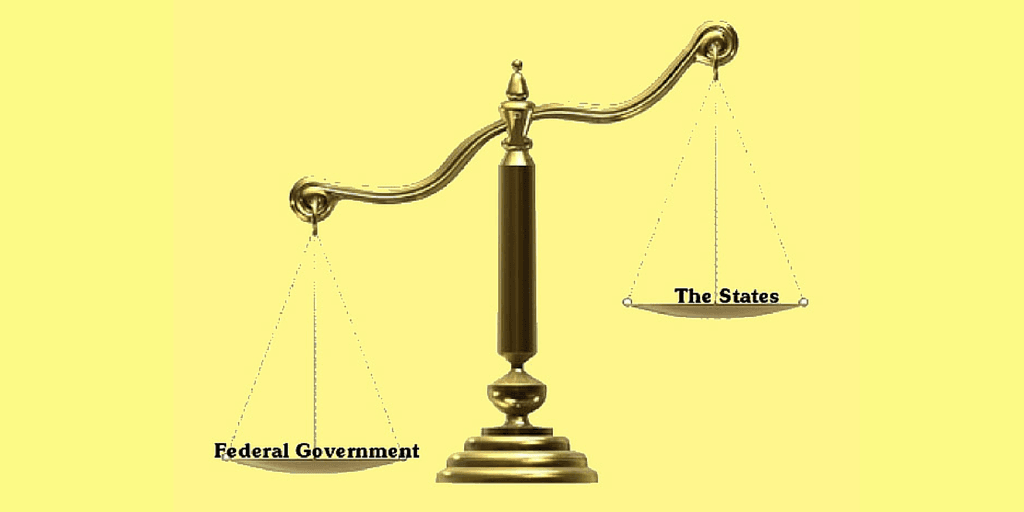
It appears that America has a new style of government. In years past, liberal Democratic presidents like Franklin Roosevelt governed by working to pass laws in Congress.
But in recent years, progressives seem to believe they can govern undemocratically with regulatory edicts simply dictated from Washington.
Voters in 2016 should ask those who seek to become our leaders a simple question:
What will you do to permanently end “regulation without representation” and ensure that federal regulations, like federal laws, have the consent of the governed?
Or, on the other hand, are you satisfied with a government in which bureaucrats dictate the rules that govern us?
Every Republican who voted in the U.S. House of Representatives, and some courageous Democrats, recently voted for a bill called the REINS Act (Regulations in Need of Scrutiny) to require that major new federal regulations be approved by Congress.
Most Republican presidential candidates have said that they would sign the REINS Act if it were passed by Congress.
But it is very unlikely that such a law could get the support of the necessary 60 votes in the U.S. Senate, even if America elected a president who would sign it.
Furthermore, the constitutionality of such a law could be challenged in court and, even if upheld, it could be repealed or waived by a future Congress.
An Amendment to the U.S. Constitution, on the other hand, could permanently rein in federal regulators and help to restore the checks and balances intended by the authors of our Constitution.
Most Americans understand that Washington is gridlocked on major issues, and even the election of a new president will probably leave advocates of limited government short of the two-thirds vote to propose an amendment or even the 60 Senate votes needed to enact permanent, fundamental reforms.
But there is a way to break the deadlock in Washington.
Just as Rep. James Madison, the first floor leader of the U.S. House or Representatives, took advantage of pressure from the states to help persuade Congress to propose the Bill of Rights, which took effect almost 224 years ago on Dec. 15, 1791, a partnership between state leaders and reform-minded leaders in Congress could achieve results today.
In our time, a constitutional amendment to permanently require that major federal regulations be approved by Congress could, by reducing the risk of capricious overregulation, jump-start American economic growth and help create millions of new jobs.
It could protect our constitutional rights and personal freedom against infringement by federal regulators.
Polls show that voters favor a constitutional amendment to require congressional approval of major regulations by a 2-1 margin.
A potential bipartisan political coalition in the states that could force Congress to act already exists.
Sixty-four of the 67 legislative chambers in the 34 most limited-government-minded states are already controlled by Republicans. Democrats who have good reason to distrust federal regulators and good reasons not to be perceived as “rubber stamps for federal regulators” are swing votes in three more chambers.
The Regulation Freedom Amendment could halt unfunded federal mandates
In fact, 15 state legislative chambers, including the Tennessee Senate and the Utah Senate, have already passed resolutions urging Congress to curb federal regulators by proposing the Regulation Freedom Amendment, which says:
“Whenever one quarter of the Members of the U.S. House or the U.S. Senate transmit to the President their written declaration of opposition to a proposed federal regulation, it shall require a majority vote of the House and Senate to adopt that regulation.”
As support for the Regulation Freedom Amendment grows, it will become more and more difficult for opponents to explain why bureaucrats in Washington should keep their power to dictate rules to the American people.
But pro-limited-government leaders in Washington and those who seek to become leaders need to recognize that the nation’s capital is too divided and fond of its own power to reform itself.
America is looking for new leaders who will follow James Madison’s example and help mobilize the power of states to curb the power of Washington.
America is looking for leaders who will build a partnership with states to reform our government.
Regulatory abuse is only one example of federal misconduct. The irresponsible borrowing that threatens the long-term solvency of America is another. The imposition of unfunded federal mandates on states is still another.
Where are the leaders who will reach out to state leaders to build a partnership for restoring constitutional limited government in America?
Perhaps Americans should be asking an even more fundamental question:
Which politicians in Washington want to keep power in Washington ?
And which ones want to empower the states to take it back to the states and the people, where it belongs?
• Mark Norris is the majority leader of the Tennessee Senate and the immediate past chairman of the Council of State Governments. Wayne Niederhauser is the president of the Utah Senate.
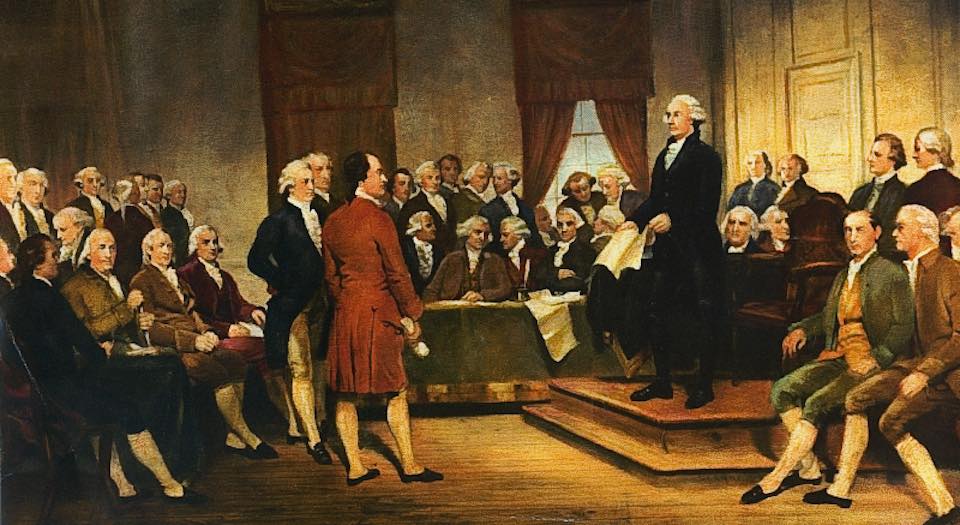
On Friday, April 22, the Republican National Committee unanimously voted for a Resolution supporting the Regulation Freedom Amendment to the U.S. Constitution to require that major new federal regulations be approved by Congress before they can take effect.
Support for the Amendment now includes more than 900 state legislators, 6 Governors, the American Farm Bureau, the National Taxpayers Union and political leaders from across the nation.
Former presidential candidates Ted Cruz and John Kasich have also endorsed the Amendment Key Donald Trump supporters also back the Amendment including Maine Gov. Paul LePage, and North Dakota Congressman Kevin Cramer.
The Madison Coalition is leading a bipartisan effort to mobilize state and congressional leaders to force Congress to curb the authority of federal regulators.
19 State Legislative Chambers have passed Resolutions urging Congress to propose the Regulation Freedom Amendment and a majority of Senators in a 20th, have signed a letter endorsing the Amendment.
These chambers are:
Indiana-House and Senate
Georgia-Senate
Tennessee-House and Senate
North Dakota-House and Senate
South Dakota-House and Senate
Wyoming-House and Senate
Idaho-House
Utah-House and Senate
Missouri Senate
Arkansas House
(A majority of the Members of the Arkansas Senate have signed a letter endorsing the Amendment)
West Virginia House and Senate
Kansas House
Similar Resolutions are pending in other states.
Ending the fear of capricious Federal regulators by requiring that Congress approve major new federal regulations would be a powerful way to protect our Constitutional rights and accelerate economic growth!
Every voting Republican Member of the of the U.S. House along with some courageous Democrats recently supported the “REINS” Act to require that Congress approve major new federal regulations, but Congress is too divided to override a Presidential veto and such a law also could be challenged in Court or repealed or weakened by a future Congress.
However just as states forced Congress to propose the Bill of Rights, and more recently the 17th and the 22nd amendments, 2/3 of the states who favored the same Amendment to curb regulators might well force Congress to propose it.
The Text of the Regulation Freedom Amendment is:
“Whenever one quarter of the Members of the U.S. House or the U.S. Senate transmit to the President their written declaration of opposition to a proposed federal regulation, it shall require a majority vote of the House and Senate to adopt that regulation.”
The 31 states with GOP majorities in the state legislature, along with reasonable Democrats in other states such as KY, where the Democratic House Majority Leader has endorsed it, NM, a pro-energy state and IA, a pro-agriculture state could add up to a 2/3 majority of 34 states that could force Congress to act. ME, MN, CO and WA are also possibilities.
Even the credible threat that states might force Congress to act could deter regulators and force elected officials and 2016 candidates to answer a simple question: “Should regulators keep their power to dictate from Washington, or should they be made more accountable to elected officials?”
Polling shows that voters, by a 2-1 margin favor the Regulation Freedom Amendment. The issue unites friends of limited government and attracts Republicans, Independents and Democrats.
If 2/3 of the states demonstrate their power to force Congress to propose an Amendment without a Convention, the entire balance of state and federal power will be transformed.
The legislatures of 7 States have already passed laws that strengthen their ability to force Congress to act:
Indiana, Tennessee, Florida, Georgia
Utah, South Dakota and North Dakota.
Similar legislation is pending in other states.
A U.S. House 10th Amendment-based “Madison Rule” or a similar pledge by a majority of U.S. Senators to recognize and enforce the Article V and 10th Amendment power of states to strictly limit the scope of a Convention would further strengthen the power of states to force Congress to propose a state-initiated Amendment, even if states never explicitly threatened a Convention (emphsis .
Faced with even the potential of such a threat Congress would almost certainly propose the Amendment states wanted to avoid the risk of a Convention that would be more powerful than Congress (emphasis assed).
The bottom line is that a strategy of passing “Regulation Freedom Amendment” Resolutions by 34 states and either 1) “Faithful Delegate” laws enacted in a majority of states or 2) A 10th Amendment Rule adopted in the House, or 3) A 10th Amendment pledge taken by 51 Senators could empower the states to force Congress to propose the Regulation Freedom Amendment as early as 2017.
And faced with the threat of a potentially serious and growing effort to curb their power, regulators might become more willing to work with members of the regulated community on reasonable compromise.
Here is a partial list of political leaders who support the Regulation Freedom Amendment:
GOVERNORS
Mike Pence, IN
Phil Bryant, MS
Matt Mead, WY
Paul LePage, ME
Bill Haslam, TN
John Kasich OH
STATE LEADERS
NCSL (National Conference of State Legislators) President and UT Senate President Pro-Tem Curt Bramble
CSG (Council of State Governments) immediate past National Chair and TN Senate Majority Leader Mark Norris
ALEC (American Legislative Exchange Counsel) Immediate Past National Chair and TX State and Federal Power Committee Chair Rep. Phil King
ND Treasurer Kelly Schmidt
ND Senate Majority Leader Rich Wardner
ND House Majority Leader Al Carlson
ND Former CSG Chair Rep. Kim Koppelman
TN Lt Gov/Senate President Ron Ramsey
AR former Senate Majority Leader Eddie Jo Williams
GA Senate President David Schafer
GA NCSL Former President Sen. Don Balfour
ID House Speaker Scott Bedke
IN Senate President David Long
IN House Speaker Brian Bosma
KS House Speaker Ray Merrick
KS House Speaker Pro Tem Peggy Mast
KY Senate President Robert Stivers
KY House Majority Leader Rocky Adkins
MI Senate President Pro-Tem Tonya Shuitmaker
MO Former Senate President Tom Dempsey
NE Senate President Galen Hadley
NC House Majority Leader Mike Hager
OH former House Speaker Pro-Tem Matt Huffman
TN House Speaker Beth Harwell
UT Senate President Wayne Niederhauser
VA House Maj. Caucus Chair Tim Hugo
WV Senate President Bill Cole
WY Senate Majority Leader Eli Bebout
WY former House Speaker Tom Lubnau
BUSINESS GROUPS AND LEADERS
American Farm Bureau Federation
Indiana Manufacturers Association
Indiana Bankers Association
Kansas Chamber..United for Business
Kansas Bankers Association
Kansas Automobile Dealers Association
Kansas Farm Bureau (KGFA))
Kansas Grain and Feed Association
Kansas Cooperative Council (KCC)
Kansas Agribusiness Retailers Association (KARA)
Kansas Building Industry Association
Salt Lake Chamber, UT’s Business Leader
Tennessee Chamber of Commerce and Industry
Tennessee Mining Association
Tennessee Association of Health Underwriters
Wyoming Stock Growers Association
Terry Considine, CEO Considine Investment Company
Ken Burgess, Chairman, First Capital Bank, Midland, TX, Chair, Texas Bankers Association.
LEGAL EXPERTS
C. Boyden Gray, Former White House Counsel
Chuck Cooper, Former Director, Department of Justice Office of Legal Counsel
John Ryder, General Counsel, RNC
David Norcross, fmr. RNC Gen. Counsel Tom Sansonetti, fmr RNC Gen. Counsel Mark Braden, fmr RNC Gen. Counsel
Bill Crocker, fmr RNC Gen. Counsel
Curt Levy, Pres. Cmtee for Justice
John Eastman, Director, Center for Constitutional Jurisprudence
CONSERVATIVE LEADERS
American for Tax Reform President Grover Norquist
Former U.S. Senate Majority Leader Trent Lott
Former House Appropriations Chair Bob Livingston.
McCain 2008 National Chair Charlie Black
Tea Party Patriots Co-Founder Jenny Beth Martin
Let Freedom Ring President Colin Hanna
Federalist Society Co-Founder David McIntosh
Former RNC Chair and Secretary of Veterans Affairs Jim Nicholson
Former NRA President David Keene,
Former Ohio Secretary of State Ken Blackwell
Former Virginia Attorney General Ken Cuccinelli
Former National Federation of Women Chair Sue Lynch
Former NFRW Chair Kathy Brugger
Larry Pratt, Executive Director, Gun Owners of America.
Steve Moore, Economist, former Member of the WSJ Editorial Board
CONSERVATIVE GROUPS
National Taxpayers Union
National Federation of Republican Women
South Dakota Republican Party
Wyoming Republican Party
Our goal is a network of volunteer and business leaders around the nation who can bring the Regulation Freedom Amendment to the attention of 4000 state legislators in both parties in the most pro-limited government 34 states. Together this coalition could force Congress to act!
Contact Us
We will get back to you as soon as possible
Please try again later

